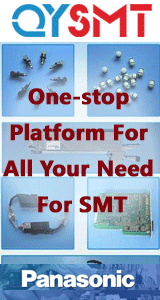Despite the emergence of high capacity, low cost FPGAs that offer the potential to be used as a platform for digital system design, there are currently significant cost and technology barriers facing engineers who wish to exploit this potential. Current tools are primarily HDL based and not well integrated with embedded software tools. Also, HDL-based IP cores are expensive and have complex licensing schemes. To date, these barriers have hindered the penetration of FPGAs as a platform solution for mainstream engineers.
Altium says that its new BoC technology will enable engineers to overcome these barriers and use familiar design methodologies to harness the power of FPGAs as a design platform. �We recognize the potential of FPGAs as a design platform but currently tools to allow engineers to fully exploit this potential are just not there,� says Nick Martin, Joint CEO and founder, Altium. �However, the technology that we are developing at Altium will allow us to deliver a system that enables rapid implementation and testing of complete digital systems on FPGAs � without the need for HDL source files or extensive synthesis and verification.�
Board-on-Chip technology
In order to facilitate BoC design, Altium has brought together technology from the full range of its EDA and embedded products. Altium�s nVisage multi-dimensional design capture and TASKING embedded software technologies (including Viper multi-core compiler and debugger technologies) have been combined on the Design Explorer (DXP) platform to provide a single, integrated hardware design and software development environment.
The BoC system that Altium will preview at Programmable World will include:
� Mixed schematic/VHDL design capture
� Integrated software development
� Processor core packs that combine pre-synthesised processor cores with matching compiler, simulator and debugger
� Schematic component libraries containing a range of pre-synthesised components including common peripheral devices, 74xxx series logic and a range of communication and interface components
� Primitives and macro libraries for all Xilinx and Altera device families
� �Virtual� instruments such as logic analyzers and frequency counters that can be built into the design for test purposes
� A BoC development board loaded with an FPGA that functions as a breadboard and allows implementation of the design directly from the engineer�s PC onto the FPGA.
�What makes this technology a real break-through is that it will provide a fully-integrated and self-contained system for FPGA-based design that will be accessible to the vast majority of engineers,� says Martin. �This BoC technology represents a new EDA paradigm and has the potential to significantly lower development costs and provide huge benefits to engineers in terms of time to market and design flexibility.�
True parallel development of hardware and software
One of the most significant benefits of Altium�s BoC technology is that it allows a more flexible approach to partitioning the design between hardware and software � engineers retain the ability to choose a hardware or software solution to any particular problem throughout the design process. Also, the inclusion of a targeted development board as part of the BoC system allows hardware dependencies in the software to be addressed before the target hardware is finalized.
In general software tends to remain fluid throughout the development process because it is easy to update and change. Hardware, on the other hand, tends to be locked down early in the process because of time and cost involved in each hardware iteration and the fact that the board needs to be available in order to finalize software development. However, using the BoC system with its reconfigurable FPGA-based hardware platform, hardware updates can be made as easily as software updates. This makes it possible to continue to explore different hardware options throughout the design process and allows final hardware/software partitioning decisions to be delayed until late in the development process.
Reducing development costs and time to market
The more flexible and parallel design approach enabled by the BoC technology will dramatically reduce time to market compared to traditional linear process flows. Within the BoC system, a new prototype is effectively generated each time the design is downloaded to the development board. This means that systems can be more fully developed and tested before fabricating the first PCB prototype. Also, because more of the design is implemented inside the FPGA, including the processor, the final PCB design and fabrication will be simpler, leading to further cost and time savings.
Further information
Altium will be demonstrating its BoC system at the Programmable World forum which begins on May 6. For details go to http://www.xilinx.com/events/pw2003/index.htm.
About Altium Limited
Altium Limited (ASX: ALU), trading as Protel International Limited (ASX: PRI) prior to August 6, 2001, is a leading global developer and supplier of desktop Electronic Design Automation (EDA) and embedded software design tools for the Microsoft Windows environment.
Since the company�s foundation in 1985 and its release of the world�s first Microsoft Windows�based EDA tool in 1991, Altium has continued to apply the most advanced software design methods to provide powerful, easy-to-use and affordable design software to engineers and electronics designers worldwide.
Altium�s current product brands include Protel, nVisage, P-CAD, TASKING, Accolade, CircuitMaker and CAMtastic. These products offer tailored solutions covering a range of hardware and software design processes.
Altium is headquartered in Sydney, Australia, and operates a number of sales and support offices in Australia, the United States, Japan and Europe, as well as maintaining a large reseller network in all other major markets. More information about the company and its products and services may be obtained from our website at http://www.altium.com.
Altium, Protel, DXP, Design Explorer, nVisage, P-CAD, TASKING, Accolade, CircuitMaker, CAMtastic, Situs and Topological Autorouting and their respective logos are trademarks or registered trademarks of Altium Limited or its subsidiaries. All other registered or unregistered trademarks referenced herein are the property of their respective owners, and no trademark rights to the same are claimed.
 »
»





